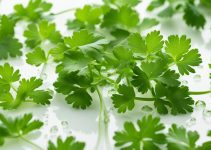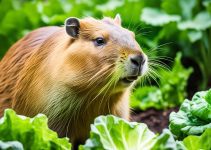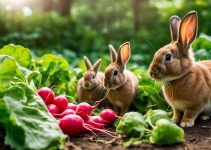Greetings, fellow pig enthusiasts! Today, I am excited to dive into the intriguing world of pig diets. Have you ever wondered what do pigs eat and what they enjoy to munch on? Join me as we explore the fascinating culinary preferences of these omnivores and learn about the factors that influence their food choices, whether in the wild or on the farm.
Pigs are known to have a diverse diet that encompasses both plant-based and animal-based foods. Their eating habits are influenced by a combination of natural instincts, habitat conditions, and human intervention. So, let’s find out what’s on the menu for our oink-worthy friends!
What Do Pigs Eat?
- Pigs are omnivores and can consume both plant-based and animal-based foods.
- Their diet varies depending on their natural instincts, habitat, and human intervention.
- Domesticated pigs are typically fed a formulated diet consisting of grains, vegetables, fruits, and supplements.
- Pigs have their own food preferences, and their favorite foods can include cooked broccoli, pitted apricots, cucumbers, and more.
- Wild pigs rely on foraging and have a diverse diet that includes roots, tubers, insects, small animals, and carrion.
Pigs’ Favorite Food – Exploring Their Palate
Pigs have a diverse range of tastes when it comes to their favorite foods. Some of their top choices include cooked broccoli, pitted apricots, cucumbers, lettuce, potatoes, beets, grapes, pumpkins, squashes, peas, spinach, yams, kale, tomatoes, chard, carrots, pears, apples, berries, citrus fruits, melons, and tomatoes. However, it’s important to note that not all pigs have the same food preferences. Just like humans, pigs have their own unique tastes and preferences.
In addition to their love for fruits and vegetables, pigs also enjoy various treats. These can include vegetarian dog biscuits, fresh fruit, and even uncooked pasta. These treats provide them with additional flavors and textures to enhance their dining experience.
Providing pigs with a wide variety of foods not only satisfies their taste buds but also ensures a balanced and nutritious diet. It’s fascinating to observe the different food choices that pigs have and how they relish their favorite treats.
Pigs’ Natural Diet and Foraging Habits
In their natural habitat, pigs are skilled foragers and rely on their sense of smell to search for food. They have a diverse and adaptable diet that includes roots, tubers, insects, small animals, and carrion.
Foraging is an instinctive behavior for pigs, allowing them to find buried food items and engage in physical exercise. This natural instinct plays a crucial role in their survival and overall well-being.
Wild Pigs: A Diverse Diet for Survival
Wild pigs, known for their adaptability, prefer a diverse diet that includes roots, tubers, insects, small animals, and eggs. Their omnivorous nature allows them to thrive in different environments, making use of available food sources.
For wild pigs, foraging serves as a means of survival, as they are constantly on the lookout for nutritious food to meet their dietary needs.
Foraging Habits: Unveiling Pigs’ Culinary Skills
Pigs use their powerful sense of smell to detect and locate potential food sources. They root through the soil, enabling them to uncover hidden treasures such as roots, tubers, and insects.
Additionally, pigs scavenge for carrion, taking advantage of the protein-rich remains of deceased animals. This foraging behavior not only provides them with nourishment but also helps maintain ecosystem balance.
By embracing their natural foraging habits, pigs engage in physical activity while obtaining essential nutrients from their environment.
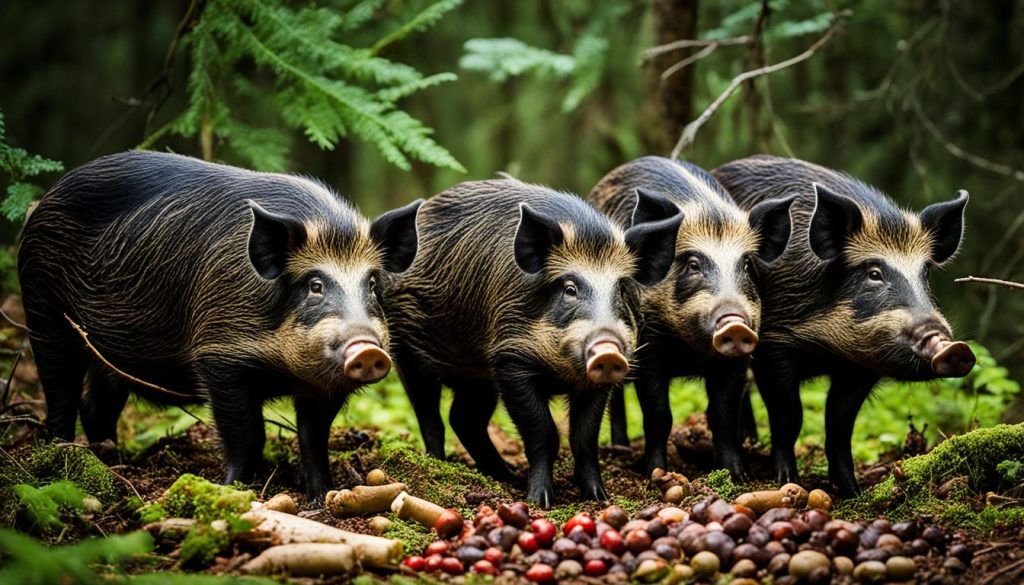
These foraged items contribute to the overall diet of pigs and support their physical and nutritional needs.
Domesticated Pigs and Their Controlled Diet
Unlike their wild counterparts, domesticated pigs have a carefully controlled diet that is determined by farmers and caretakers. It is essential to provide domesticated pigs with a balanced and nutritious diet to support their overall health and well-being.
Farmers typically feed domesticated pigs a formulated diet that is specifically designed to meet their nutritional requirements. This diet incorporates a variety of food sources, including grains, vegetables, fruits, and supplements. By combining these different elements, farmers can ensure that domesticated pigs receive the necessary carbohydrates, proteins, fats, vitamins, and minerals that are essential for their growth and well-being.
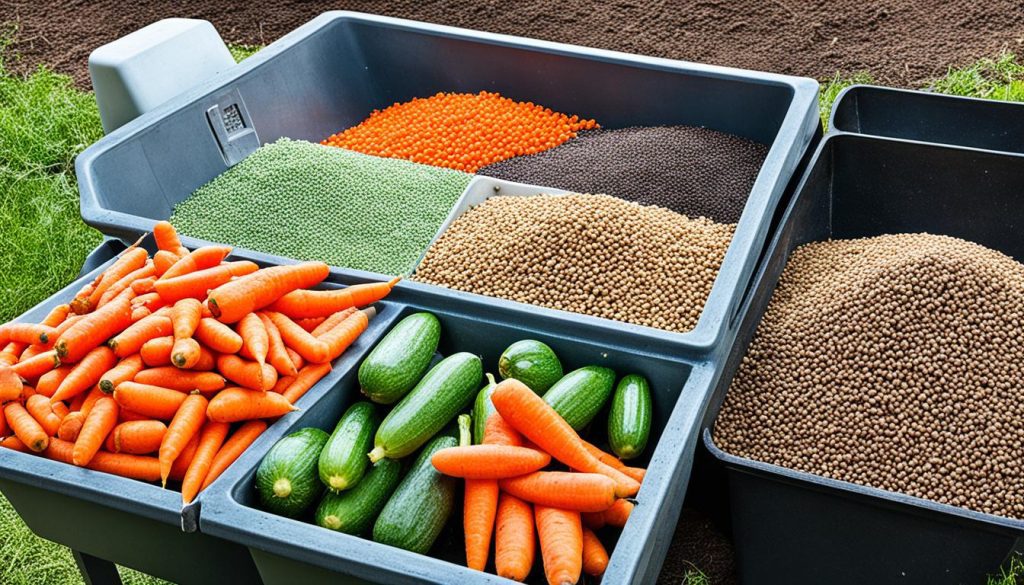
In addition to selecting the right combination of food, farmers also play a crucial role in regulating the pig’s diet. They monitor the quantity and frequency of feedings, ensuring that domesticated pigs receive the appropriate amount of food at the right intervals. This helps prevent overfeeding and promotes efficient nutrient absorption.
Furthermore, farmers have the option to customize pig feed, tailoring it to specific requirements based on the pig’s age, weight, and overall health. This flexibility allows farmers to adapt the diet as the pig grows and develops, ensuring that it is always receiving the optimum nutrition it needs.
Overall, the controlled diet of domesticated pigs is crucial for their health, growth, and overall well-being. Farmers’ careful selection and regulation of pig feeds, including grains, vegetables, fruits, and supplements, contribute to the pig’s vitality and ensure that they receive all the necessary nutrients for a healthy and thriving life.
Conclusion
Understanding the importance of a well-balanced diet and proper nutrition is vital for the overall well-being of pigs. Their diet, consisting of a diverse range of fruits, vegetables, grains, and proteins, plays a crucial role in their health and growth. By being mindful of their food preferences and providing them with a responsible and healthy diet, we can support their well-being and ensure their happiness.
Pig nutrition is not only essential for their physical health but also contributes to their mental and emotional well-being. A balanced diet rich in carbohydrates, proteins, fats, vitamins, and minerals helps pigs thrive and lead a fulfilling life. By meeting their nutritional needs, we can enhance their vitality and promote their overall welfare.
By focusing on the pig’s diet, we are not only caring for their individual well-being but also contributing to the sustainable production of pork. Providing pigs with the necessary nutrients and a healthy diet supports their growth, reduces the risk of disease, and improves the quality of the meat they produce. It is a responsible and ethical approach that benefits both the pigs and the consumers.

